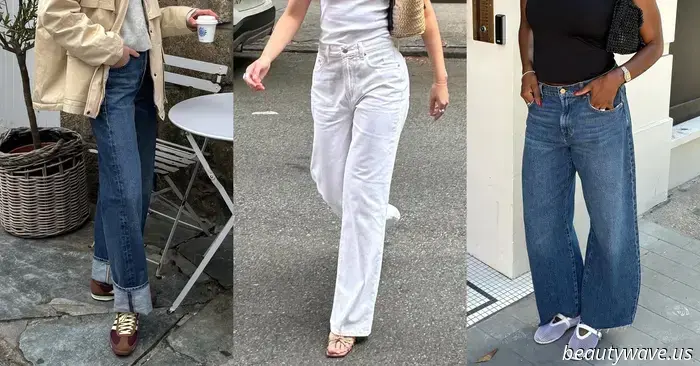-Swear-By-This-Straight-From-Nature-Skin-Hero-Thats-DIY-Mask-Approved.png)
Dermatologists and Beauty Editors (Hello, It's Me) Rave About This All-Natural Skin Savior That's Approved for DIY Masks.
Honestly, I tend to approach most beauty-related projects in the kitchen with skepticism. I've heard far too many DIY horror stories to ever consider trying my own acid peel (ouch) or sugar scrub. I'm not an expert like Nara Smith, nor am I a cosmetic chemist, so I’d rather spend money on a commercially-made product than risk even more expenses fixing my skin barrier after a failed treatment. However, there is one food-grade ingredient I'll gladly apply to my face any day: manuka honey. As a single-ingredient wonder, there's no need for me to play chemist and gamble with my skin's health—and the advantages are plentiful. Experts agree, although they offer a few tips to keep in mind before fully committing. You can find those tips below, along with a starter pack for all-natural skincare.
What is manuka honey?
Manuka honey is a unique honey variety sourced from manuka trees found in New Zealand and coastal Australia. "Unlike regular honey, manuka honey is raw and monofloral, meaning it comes from the nectar of one type of flower, while regular honey is processed and derived from multiple sources," explains board-certified dermatologist Nicole Lee, MD, MPH, FAAD, owner of Epoch Dermatology. While this doesn’t imply that manuka honey goes directly from hive to face, it does undergo processes to eliminate impurities, as noted by cosmetic chemist Krupa Koestline, founder of KKT Labs; otherwise, it can’t be effectively formulated for cosmetic products. However, it typically does not go through excessive heating or other processing techniques that could compromise its nutrient content.
It is this robust nutritional profile that grants manuka honey its esteemed reputation. "Manuka honey is more effective for the skin than regular honey due to its high methylglyoxal (MGO) concentration, giving it superior antibacterial, anti-inflammatory, and wound-healing properties," Lee points out. "While both kinds of honey hydrate the skin, manuka honey is clinically acknowledged for treating acne, eczema, and wounds, making it a more effective option for skin repair and barrier support."
How is it used in skincare?
As Lee mentioned, manuka honey possesses remarkable antibacterial, anti-inflammatory, and wound-healing attributes. Indeed, "A study indicated that lesions caused by atopic dermatitis [eczema] showed significant improvement after localized application of manuka honey," Koestline reveals. So if you grapple with sensitive, inflamed skin, manuka honey can offer soothing, healing effects. It also functions as a humectant, attracting and retaining moisture from its surroundings (similar to hyaluronic acid, another popular humectant).
Moreover, its antimicrobial properties can even aid those with acne-prone skin. "Its natural antibacterial qualities can help diminish breakouts and promote overall skin healing," Lee adds. In summary, this single ingredient is as close as it gets to liquid gold.
You can find manuka honey in a variety of skincare products—from cleansers to serums to nutrient-dense creams—but my preferred method of using it is as a healing mask. "Just wet your face and apply a thin layer of honey, leaving it on for 15-20 minutes before rinsing," advises Lee. She also mentions that you could blend it with oats, water, and yogurt for a more hands-on approach, but I prefer to keep it straightforward.
Does manuka honey help with wrinkles?
Absolutely! That MGO content (which contributes to manuka honey's exceptional anti-inflammatory properties) is extremely high in antioxidants, which help combat free radicals that lead to skin aging—think fine lines, wrinkles, and loss of elasticity. The regenerative properties of manuka honey are also believed to support collagen production, which is directly linked to the firmness and smoothness of your skin.
Finally, as Lee highlighted, manuka honey possesses impressive humectant properties, effectively hydrating the skin—this, in turn, may improve the appearance of fine lines. Thus, while this ingredient does not specifically promote cell turnover (like a retinol or AHA), it can indeed make a difference in the appearance of wrinkles over time.
Are there downsides to manuka honey?
There are very few downsides to manuka honey, as it is effective for all skin types, including sensitive and acne-prone individuals. However, if you are allergic to bees or honey, you'll want to avoid it. Both Lee and Koestline also suggest conducting a patch test with any new product you introduce to your skincare regimen to avoid any adverse reactions; simply apply it to a small area of skin (like behind your ear) before using it on your entire face.
It's also important to note: "While manuka honey is often lauded for its antibacterial and healing properties, there is limited clinical evidence fully validating its medical benefits in skincare," Lee clarifies. This does not imply that all the skincare benefits we just discussed are just hype; it simply means that manuka honey
-Swear-By-This-Straight-From-Nature-Skin-Hero-Thats-DIY-Mask-Approved.jpg)
-Swear-By-This-Straight-From-Nature-Skin-Hero-Thats-DIY-Mask-Approved.jpg)
-Swear-By-This-Straight-From-Nature-Skin-Hero-Thats-DIY-Mask-Approved.jpg)
-Swear-By-This-Straight-From-Nature-Skin-Hero-Thats-DIY-Mask-Approved.jpg)
-Swear-By-This-Straight-From-Nature-Skin-Hero-Thats-DIY-Mask-Approved.jpg)
-Swear-By-This-Straight-From-Nature-Skin-Hero-Thats-DIY-Mask-Approved.png)
-Swear-By-This-Straight-From-Nature-Skin-Hero-Thats-DIY-Mask-Approved.jpg)
-Swear-By-This-Straight-From-Nature-Skin-Hero-Thats-DIY-Mask-Approved.jpg)
Other articles
 I Discovered It—the Stylish Flat Shoe Trend That Appears Just as Sophisticated as Heels.
I'm currently gravitating towards almond-toe flat shoes. Click through to explore this stylish trend and see my selection of the finest styles here.
I Discovered It—the Stylish Flat Shoe Trend That Appears Just as Sophisticated as Heels.
I'm currently gravitating towards almond-toe flat shoes. Click through to explore this stylish trend and see my selection of the finest styles here.
 Here's How All the Trendy L.A. Girls Will Style the Summer's Hottest Sandal Trend.
The leading sandal trend for Summer 2025 has received official approval from celebrities. Discover how girls in L.A. will style and shop for it here.
Here's How All the Trendy L.A. Girls Will Style the Summer's Hottest Sandal Trend.
The leading sandal trend for Summer 2025 has received official approval from celebrities. Discover how girls in L.A. will style and shop for it here.
 I understand that white skirts are stylish, but this sophisticated color is perfect for summer 2025.
The yellow skirt trend is on the verge of becoming popular. Browse through to see the styles we admire the most.
I understand that white skirts are stylish, but this sophisticated color is perfect for summer 2025.
The yellow skirt trend is on the verge of becoming popular. Browse through to see the styles we admire the most.
 9 Stylish Outfit Combinations of Tops, Jeans, and Shoes That Fashion Enthusiasts Will Sport This Spring
I intend to replicate these as soon as possible.
9 Stylish Outfit Combinations of Tops, Jeans, and Shoes That Fashion Enthusiasts Will Sport This Spring
I intend to replicate these as soon as possible.
 If you haven't seen it yet, practically everyone is sporting this stylish, high-end jacket.
Justifiably so.
If you haven't seen it yet, practically everyone is sporting this stylish, high-end jacket.
Justifiably so.
Dermatologists and Beauty Editors (Hello, It's Me) Rave About This All-Natural Skin Savior That's Approved for DIY Masks.
Experts highly recommend manuka honey for skincare, but they have a few suggestions to consider before fully embracing it. Discover their advice here, along with a beginner's skincare set.
